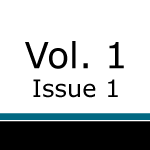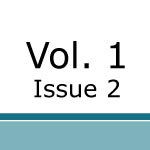Vol. 5.1: Rhetoric on the Move
The Present Tense editors are very pleased to announce a new issue for fall 2015. Volume 5.1 continues our mission of publishing a wide variety of rhetorical scholarship on a vast expanse of important contemporary topics. Articles and reviews in this issue span the sacred and the secular, the deeply personal and the broadly political. While the articles vary greatly, they share an interest in movement—how rhetoric moves and exhorts audiences to move: Pope Francis’s “undisciplined rhetoric” circulates among both believers and nonbelievers to move people with a message of love (Lynch). The art of neo-burlesque incorporates “seductive strategies [that] can move audiences pleasurably in the name of artifice, play, and entertainment” (Werner). Political memes from the 2012 presidential election “compel us to reexamine the moving parts of the rhetorical situation” (Wetherbee). Discourse moves back-and-forth between original authors and respondents regarding the effects of Law SB 1070 on people of color in Arizona (Asenas and Johnson). Research participants in a mixed-methods study enact their own rhetorical agency to generate divergent data and thus “made moves of their own” (Moeller, Walton, and Price).
Volume 5.1 includes the following articles and review essays:
“The Attractions of Imperfection: Pope Francis’s Undisciplined Rhetoric”: In this timely piece published close to the Pope’s historic fall 2015 trip to the U.S., Paul Lynch explains Pope Francis’s kairotic rhetoric as one that overcomes common tendencies to divide the substance and style of communication.
“Seductive Rhetoric and the Communicative Art of Neo-Burlesque”: Maggie M. Werner argues that neo-burlesque constitutes a form of erotic persuasion that can broaden understandings of rhetorical practice beyond a reliance on logic and reason.
“Picking Up the Fragments of the 2012 Election: Memes, Topoi, and Political Rhetoric”: Ben Wetherbee examines the “Binders Full of Women” meme phenomenon during the 2012 presidential election, exploring the relationship between memes and the concept of rhetorical topoi.
“Humanitarian and Democratic Consequences at the Intersection of Economic Globalization and Rhetorical Strategy: Extending the Conversation on SB 1070”: Jennifer J. Asenas and Kevin A. Johnson engage with Cruz Medina and Aja Y. Martinez’s Present Tense response to their original article about the rhetoric of Arizona’s law SB 1070 and its impact on immigrant populations.
“Participant Agency and Mixed Methods: Viewing Divergent Data through the Lens of Genre Field Analysis”: Ryan M. Moeller, Rebecca Walton, and Ryan Price use the theoretical framework of Genre Field Analysis (GFA) to understand how research participants in a mixed-methods study developed rhetorical agency to produce divergent data.
“Book Review: Roundtree’s Computer Simulation, Rhetoric, and the Scientific Imagination”: Stuart Blythe reviews Aimee Kendall Roundtree’s Computer Simulation, Rhetoric, and the Scientific Imagination: How Virtual Evidence Shapes Science in the Making and in the News, arguing that the book is a timely and much-needed look at the important rhetorical genre of computer simulations.
“Book Review: Kroll’s The Open Hand”: Justin Nevin reviews Barry M. Kroll’s The Open Hand: Arguing as an Art of Peace and finds it to be an inventive presentation of alternative forms of argument.
“Book Review: Applegarth’s Rhetoric in American Anthropology”: Jennifer C. Mallette reviews Risa Applegarth’s Rhetoric in American Anthropology: Gender, Genre, and Science to examine the significance of Applegarth’s use of rhetorical genre theory to explore genre in anthropology writing.
The editors wish to thank our authors for their incisive scholarship, our reviewers for their time and feedback, and our many advisers who have guided us through the years. We also wish to thank two bright, hard-working undergraduate interns who assisted in producing and advertising the issue: Shannon Wagner and Audrey Strohm. Most of all, thanks to our readers for supporting Present Tense. Please download the articles from this latest issue for your own scholarship, teaching, and general interest. We hope that you are moved to reflection, discussion, and action.
Sincerely,
Megan Schoen, Managing Editor
Ehren Helmut Pflugfelder, Managing Editor
Cristyn L. Elder, Style Editor
Elizabeth L. Angeli, Annotated Bibliography Editor
Caitlan Spronk, Technical Editor
Allen Brizee, Review Editor
Alexandra Hidalgo, Multimedia Editor
Joshua Prenosil, Business Editor
Don Unger, Social Media Editor
Jessica E. Clements, Style Editor
John Williford, Design Editor



